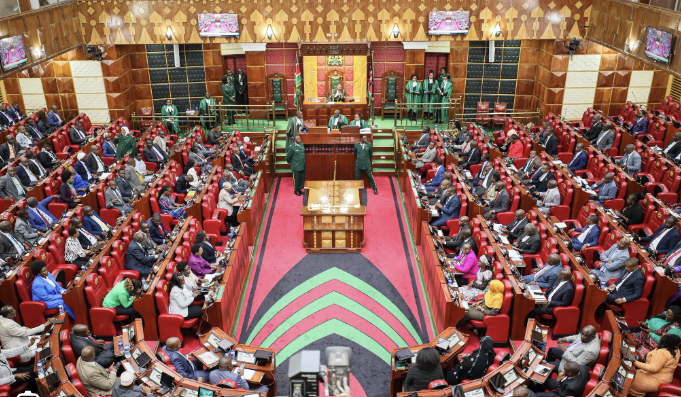
In a dramatic showdown at Parliament today, Kenyan MPs voted down proposed adjustments to PAYE tax bands and rates—a move widely described as a victory for hard-pressed low- and middle-income earners. Lawmakers are now pressing the Treasury to fast-track a comprehensive and equitable review of income tax.
What MPs Rejected
A key amendment in the Finance Bill 2025 sought to:
- Expand PAYE bands to 10%, 17.5%, 25%, 27.5%, and 30%, giving the Treasury flexibility to adjust bands by up to 10% every three years.
- Raise the lowest tax threshold to KSh 30,000 and increase monthly personal relief from KSh 2,400 to KSh 3,000.
Although progressive in intent, MPs rejected the change, citing concerns over its structure and preferring a broader data-informed overhaul.
MPs Demand Broader Reform
The National Assembly’s Finance Committee noted that the Treasury has already pledged a review of tax bands—prompting MPs to call for an accelerated, transparent and robust process .
A spokesperson noted:
“We urge the Treasury to fast-track this process,” emphasizing the need for a PAYE system that balances revenue needs and taxpayers’ welfare.
Global Recommendations Highlighted
MPs highlighted international guidance, including proposals from the World Bank, recommending:
- Introducing a new 15% bracket for middle-income earners.
- Splitting the broad 30% bracket into 25% (for KSh 32k–167k earners) and 32.5% (for KSh 167k–500k earners) to reduce burden on average workers.

Why This Matters
| Issue | Implication |
|---|---|
| Economic relief | Kenya’s current tax bands are seen as unfairly penalizing low-earning workers |
| Inflation link | Without regular indexation, tax brackets lag behind inflation |
| Urgent action | MPs insist on swift Treasury timelines to avoid burdening workers further |
What’s Next
- Expect the Treasury Cabinet Secretary to respond with a detailed timeline and framework.
- MPs may table an alternative, enhanced amendment before the Finance Bill’s next reading.
- A well-structured reform could significantly improve disposable incomes, boosting domestic spending and economic resilience.







